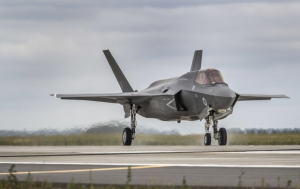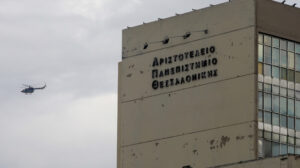Congress is taking the unusual step of trying to block the transfer of Lockheed Martin Corp.’s F-35 Joint Strike Fighters to Turkey, even though the country is a NATO ally and a partner in building the jet.
Congress’ most recent move comes as part of the 2019 Pentagon spending bill that both chambers are expected to consider later this month. Transfers of the F-35 would be held back under a compromise struck on the spending bill for the next fiscal year, according to Rep. Kay Granger (R-Texas).
Turkey finds itself in an unfurling diplomatic conflict with the U.S. over the imprisonment of an American pastor and the country’s willingness to strike a deal with Russia for air defense systems.
U.S. lawmakers’ decision to temporarily block the transfers to Turkey coincides with Ankara’s recent decision to buy a Russian-made S-400 missile defense system. Russia is expected to deliver the air-defense system to Turkey by the middle of next year, even as the Trump administration is still trying to persuade the NATO ally to buy Raytheon Co.’s Patriot system.
The defense policy bill included provisions requiring Turkish receipt of the fighter jets be held back until the Pentagon submitted an assessment on U.S.-Turkish relations, the impact of Turkey’s planned acquisition of the S-400 missile defense system, and the ramifications for the U.S. industrial base if Turkey is dropped from the international F-35 program.
10 TURKISH COMPANIES
The defense spending package, which has been paired with the Labor-Health and Human Services-Education funding bill, would allocate about $674 billion for the Pentagon in fiscal 2019.
The move reflects the tensions in U.S.-Turkish relations. Defense Secretary Jim Mattis in a letter this summer had warned Congress against cutting off transfers of the F-35, because it would risk triggering an international “supply chain disruption” that would drive up costs and delay deliveries of the fighter.
Under President Recep Tayyip Erdogan, Turkey plans to buy about 100 F-35s, joining the U.K. and Australia as the top international customers. At least 10 Turkish companies are building parts and components, such as the cockpit displays, for other partners, according to Bethesda, Md.-based Lockheed.
Erdogan has touted Russia as among the alternatives available to Turkey amid the political conflict with the U.S. and the crisis engulfing its currency. Turkish Foreign Minister Mevlut Cavusoglu defended Turkey’s decision to purchase Russian S-400 missile systems, saying that allies, primarily the U.S., couldn’t or didn’t want to sell a missile defense system that Turkey “urgently needs.”
Source: bgov
Ask me anything
Explore related questions





